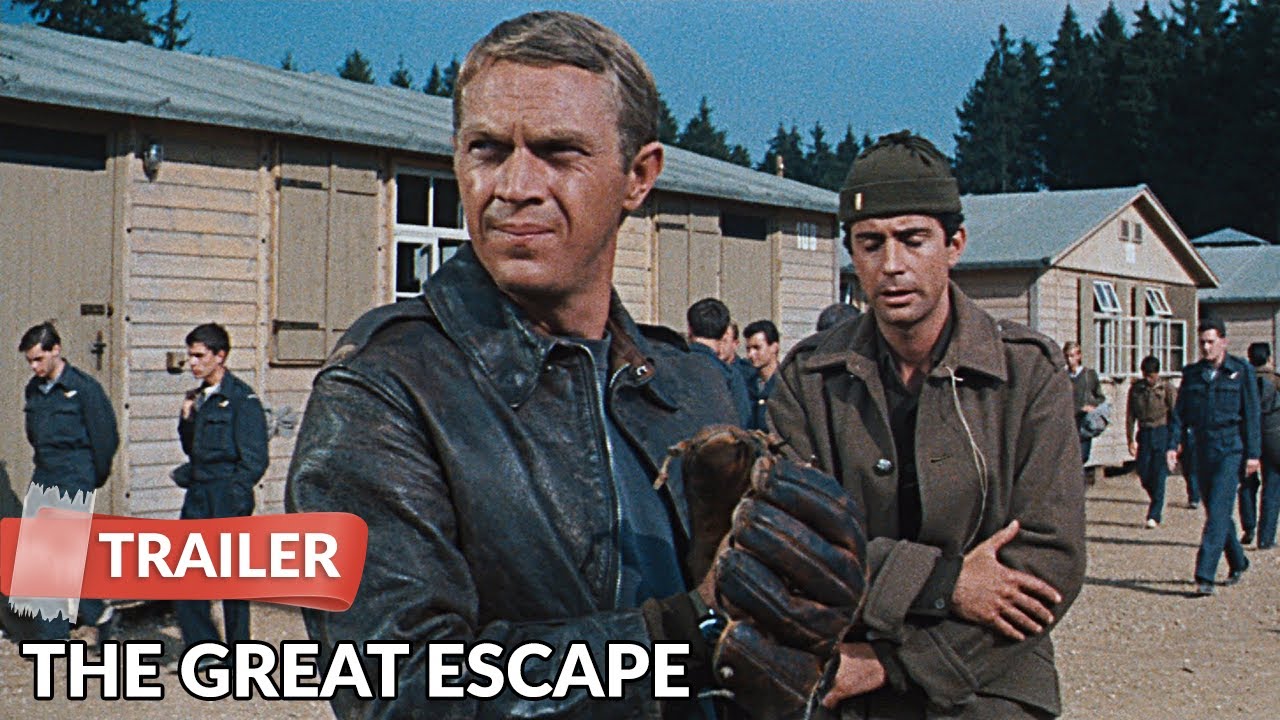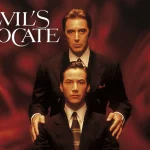The Great Escape (1963)

“The Great Escape,” released in 1963, is a seminal American war film that masterfully blends adventure, suspense, and historical narrative. Directed by John Sturges and featuring a stellar ensemble cast, including Steve McQueen, James Garner, and Richard Attenborough, the film recounts the audacious escape of Allied prisoners from a German POW camp during World War II. This epic tale not only highlights the resilience and resourcefulness of the human spirit but also serves as a poignant commentary on the broader themes of freedom, camaraderie, and sacrifice.
Based on Paul Brickhill’s 1950 book of the same name, “The Great Escape” dramatizes a true story that took place in 1944 at Stalag Luft III, a German POW camp notorious for housing Allied airmen. The film begins by introducing a diverse group of prisoners, each with unique skills and backgrounds. This ensemble cast, featuring notable actors such as James Coburn, Charles Bronson, and Donald Pleasence, brings depth and nuance to their characters, creating a rich tapestry of personalities united by a common goal: escape.
At the heart of the film is the character of Captain Virgil Hilts, played by Steve McQueen. Hilts, known for his rebellious spirit and resourceful nature, embodies the indomitable will of the prisoners. His iconic motorcycle chase scene, which showcases his daring attitude, has become one of the film’s most memorable moments. Hilts’ character not only serves as a source of inspiration for his fellow prisoners but also highlights the broader themes of defiance and resilience against oppression.
The film’s narrative structure is meticulously crafted, balancing moments of tension, camaraderie, and humor. The prisoners’ meticulous planning and execution of their escape reflect their ingenuity and determination. The film delves into the various strategies employed by the characters, including the construction of tunnels and the creation of false identities. These sequences are not only thrilling but also emphasize the importance of teamwork and collaboration in the face of adversity.
John Sturges’ direction is exemplary, capturing the essence of camaraderie among the prisoners while maintaining a palpable sense of tension throughout. The film’s pacing allows for both character development and the buildup of suspense, keeping viewers on the edge of their seats. The cinematography by C. B. West provides a stark contrast between the oppressive environment of the POW camp and the vastness of the surrounding landscape, symbolizing the prisoners’ longing for freedom.

The score, composed by Elmer Bernstein, further enhances the film’s emotional impact. The iconic theme, with its rousing and adventurous tone, complements the film’s themes of hope and determination. It has become synonymous with the story of “The Great Escape,” evoking a sense of adventure and bravery that resonates with audiences even today.
One of the film’s significant strengths lies in its exploration of friendship and loyalty. As the prisoners forge bonds amidst their dire circumstances, their relationships become central to the narrative. The film highlights moments of camaraderie, humor, and sacrifice, reinforcing the idea that shared experiences can forge unbreakable ties. This sense of brotherhood is exemplified in scenes where characters support one another, showcasing their resilience and determination to achieve freedom together.

However, “The Great Escape” does not shy away from the harsh realities of war. The film’s conclusion is marked by a sobering reminder of the consequences of their actions, as many characters face tragic outcomes in their pursuit of freedom. This poignant ending serves as a testament to the sacrifices made by those who fought for their liberty, adding emotional weight to the narrative and prompting reflection on the costs of war.

In conclusion, “The Great Escape” remains a landmark film in the war genre, celebrated for its engaging storytelling, strong performances, and powerful themes. Through its exploration of courage, camaraderie, and the relentless pursuit of freedom, the film has left an indelible mark on cinematic history. The combination of a talented cast, expert direction, and a stirring score creates a timeless masterpiece that continues to inspire audiences around the world. As both an adventure story and a poignant reminder of the human spirit’s resilience, “The Great Escape” stands as a testament to the power of hope and the unyielding quest for liberty.











